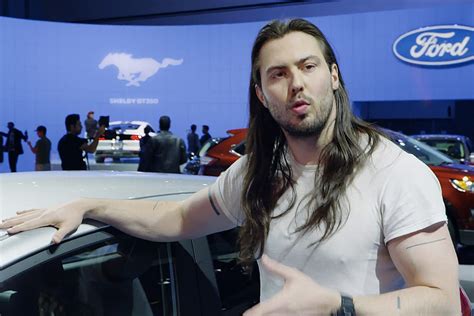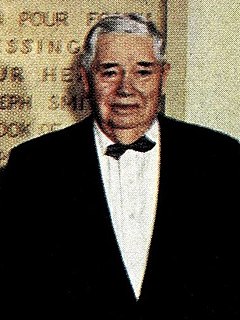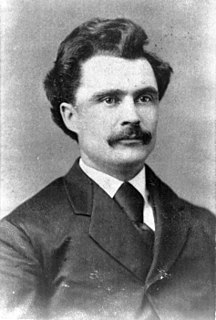A Quote by Andrew W. Ford
The price of liberty is, always has been, and always will be blood. The person who is not willing to die for his liberty has already lost it to the first scoundrel who is willing to risk dying to violate that person's liberty. Are you free?
Related Quotes
The fact is that liberty, in any true sense, is a concept that lies quite beyond the reach of the inferior man's mind. And no wonder, for genuine liberty demands of its votaries a quality he lacks completely, and that is courage. The man who loves it must be willing to fight for it; blood, said Jefferson, is its natural manure. Liberty means self-reliance, it means resolution, it means the capacity for doing without . . . the average man doesn't want to be free. He wants to be safe.
The issue of religious liberty is absolutely critical. America was founded on three different types of liberty: political liberty, economic liberty, and religious and civil liberty. It's remarkable that, one-by-one, these strands of liberty are coming under fierce attack from the Left. And that's particularly ironic because "liberal" derives from a word which means "liberty," the free man as opposed to the slave. This liberalism which we're saddled with today isn't a real liberalism at all, but a gangster style of politics masquerading as liberalism.
The liberty I mean is social freedom. It is that state of things in which liberty is secured by the equality of restraint. A constitution of things in which the liberty of no one man, and no body of men, and no number of men, can find means to trespass on the liberty of any person, or any description of persons, in the society. This kind of liberty is, indeed, but another name for justice.
It is heroic to prepare for war with a tyrant power. Patriots will always win the admiration of mankind for daring to meet the bloodshed of battle for their country's liberty. But the patriot who is willing to go to that sacrifice will be the first to condemn the aimless and secret shedding of blood in time of peace.
The essence of Vanderbilt is still learning, the essence of its outlook is still liberty, and liberty and learning will be and must be the touchstones of Vanderbilt University and of any free university in this country or the world. I say two touchstones, yet they are almost inseparable, inseparable if not indistinguishable, for liberty without learning is always in peril, and learning without liberty is always in vain.
If every person has the right to defend - even by force - his person, his liberty, and his property, then it follows that a group of men have the right to organize and support a common force to protect these rights constantly. Thus, since an individual cannot lawfully use force against the person, liberty, or property of another individual, then the common force - for the same reason - cannot lawfully be used to destroy the person, liberty, or property of individuals or groups.
The good citizen will demand liberty for himself, and as a matter of pride he will see to it that others receive the liberty which he thus claims as his own. Probably the best test of true love of liberty in any country is the way in which minorities are treated in that country. Not only should there be complete liberty in matters of religion and opinion, but complete liberty for each man to lead his life as he desires, provided only that in so doing he does not wrong his neighbor.
There are some troubles from which mankind can never escape .... have never claimed that liberty will bring perfection; they simply say that its results are vastly preferable to those that follow from authority .... As a choice of blessings, liberty is the greater; as a choice of evils, liberty is the smaller. Then liberty always says the Anarchist. No use of force except against the invader.


































